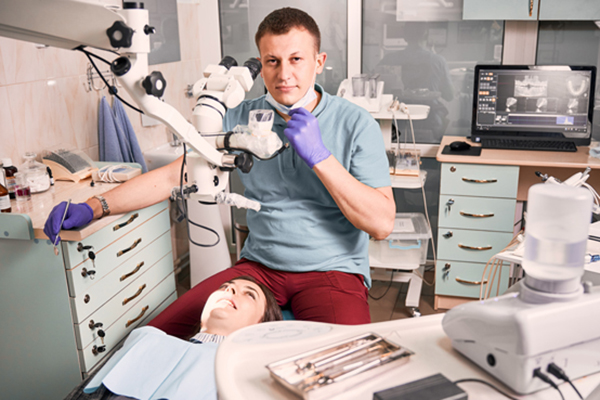Tooth Extraction for Wisdom Teeth
Understanding that is the last option for removing one or more permanent teeth is important. Teeth are meant to last a lifetime and thus need to be saved whenever possible. In addition, wisdom teeth often require extraction to support a healthy mouth.
General dentists perform tooth extractions often
The only way to know if a tooth extraction is necessary is to undergo a thorough dental examination. This is especially important for those experiencing difficulty with their wisdom teeth, as this third set of teeth does not normally play a significant role in the overall health of one's mouth. When a general dentist has determined that it is necessary to remove one or more of a patient's wisdom teeth, they will need to choose between simple tooth extraction and surgical tooth extraction.
According to Healthline, removing visible teeth is a simple extraction, and teeth that are broken, below the surface, or impacted require a more involved procedure.
The process of extracting a wisdom tooth
The information below outlines what to expect when a general dentist performs a wisdom tooth extraction.
Consultation appointment
The first thing a patient needs to do to understand whether or not their wisdom teeth need to be extracted is to make a consultation appointment with an experienced general dentist. During the consultation, the patient will undergo a mouth examination, as well as have X-rays taken. If the dentist finds that the patient needs to have a tooth extraction, they should be told whether or not it will be a simple or surgical extraction so they can properly prepare. At this time, the dentist and patient will also choose the type of anesthesia required for the operation to ensure that the patient has minimal discomfort.
The tooth extraction procedure
The general dentist will give the patient a choice of anesthesia, e.g., local, sedation, or general. If a simple extraction is necessary, the dentist will use special dental tools to grasp the tooth and extract it from the mouth. Simple tooth extractions take an average of 30 minutes to complete. If a surgical extraction is necessary, the dentist will make a small incision in the gum tissue to remove the wisdom tooth. Surgical tooth extractions take an average of 60 minutes to complete.
The recovery process
All dental patients who undergo wisdom tooth extractions will be given detailed recovery instructions. Patients must carefully follow these instructions to avoid any recovery problems or complications. Examples of instructions include resting, using an ice pack to keep swelling down, being careful not to dislodge the blood clot, drinking plenty of water, and taking any necessary pain relievers. In addition, patients who experience fever, excessive bleeding, difficulty swallowing, or swelling that gets worse instead of better need to contact the dentist for potential additional treatment to address these occasional complications.
Learn more about tooth extraction
Tooth extraction of any kind should not be feared, as the current technology ensures safe and efficient results. However, when general dentists need to extract wisdom teeth, preparing for a more involved recovery is best. To learn more about any tooth extraction, reach out today.
Request an appointment here: https://www.drcranedental.com or call T. Kirk Crane, DDS at (337) 205-9565 for an appointment in our Lafayette office.
Check out what others are saying about our dental services on Yelp: .
Related Posts
A broken tooth can happen at any time — during sports, while eating, or from an unexpected fall. Regardless of the cause, an emergency dentist can help. Through prompt treatment, these dental providers offer an effective way to relieve pain and protect oral health. An emergency dentist can also help prevent complications like infection, nerve…
Getting tooth implants is not the final phase of an implant restoration procedure. The stage is simple, but the recovery period can be uncomfortable. This part of the implant process is the time for the mouth heals and fuses to the implant post. The following guide covers what to expect during recovery and the steps…
A dental implant provides a stable base for a natural-looking tooth replacement. This proactive solution fills gaps in the smile and maintains a healthy jaw. Respectively, the bite remains aligned, preserving the natural shape of the face. Thanks to dental implants, patients can enjoy a stable and beautiful smile that lasts.The most noticeable impact of…
Having a cavity is no fun. Fortunately, there are options like laser dentistry that can make cavity treatment more effective and efficient than the traditional cleaning and filling that many patients are used to. Here are some benefits of laser cavity treatment to help you better understand how this treatment method can help improve your…
